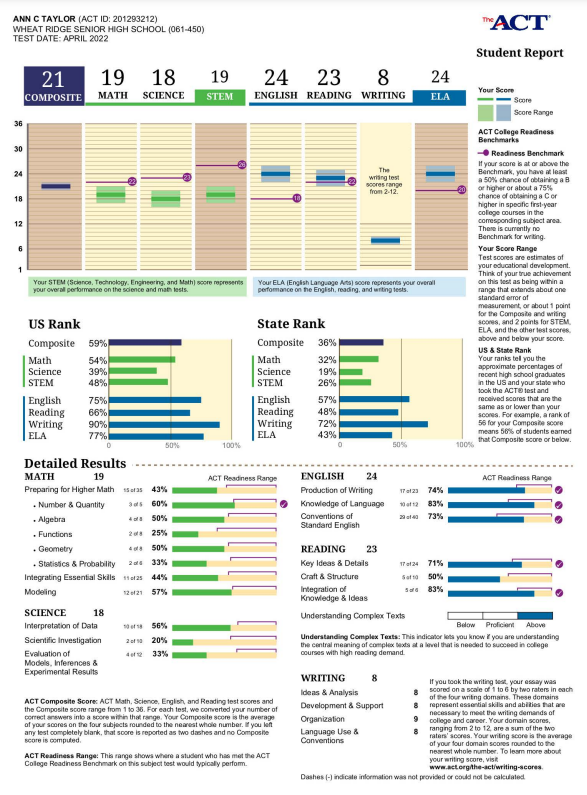The ACT score calculation process begins with determining the raw score for each section: ACT English, Math, Reading, and Science. This raw score is simply the count of correctly answered questions. There’s no penalty/negative marking for incorrect answers, so it’s advantageous to attempt every question. These raw scores are then transformed into scaled scores, ranging from 1 to 36. This conversion ensures fairness by accounting for potential variations in test difficulty across different administrations.
The final step involves calculating the composite score. It is the average of the four scaled section scores. This composite score ranges from 1 to 36, which provides an overall representation of your performance across all subject areas. It’s important to note that the composite score is rounded to the nearest whole number, with half-points rounded up.
Step 1: Determining raw scores
Count correct answers: For each section (English, Math, Reading, Science), the number of correct answers you get is your raw score.
Step 2: Converting to scaled scores
-
Raw scores to scaled scores: Your raw score for each section is converted to a scaled score on a scale of 1–36.
-
Equating: The conversion process ensures that scores from different ACT test dates are comparable, even if the difficulty of the tests varies.
Step 3: Calculating the composite score
-
Average of section scores: Your composite score, the overall ACT score, is the average of your four section scores (English, Math, Reading, and Science).
-
Rounding: The composite score is rounded to the nearest whole number. For example:
If you scored 32 in English, 34 in Math, 31 in Reading, and 30 in Science, your composite score would be:
(32 + 34 + 31 + 30) / 4 = 31.75
Rounded down to the nearest whole number, your composite score is 31.
Read also: SAT Cutoff








